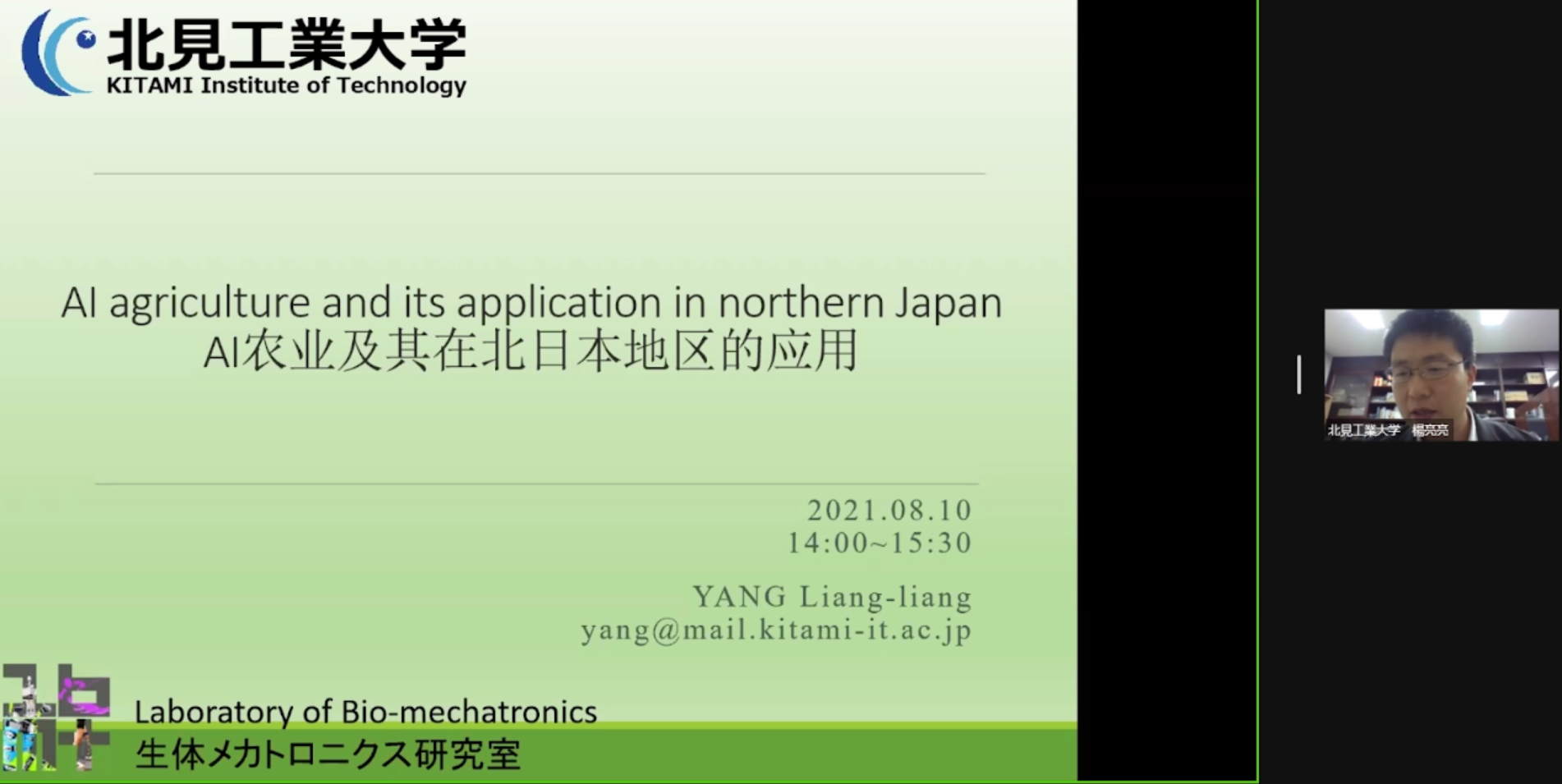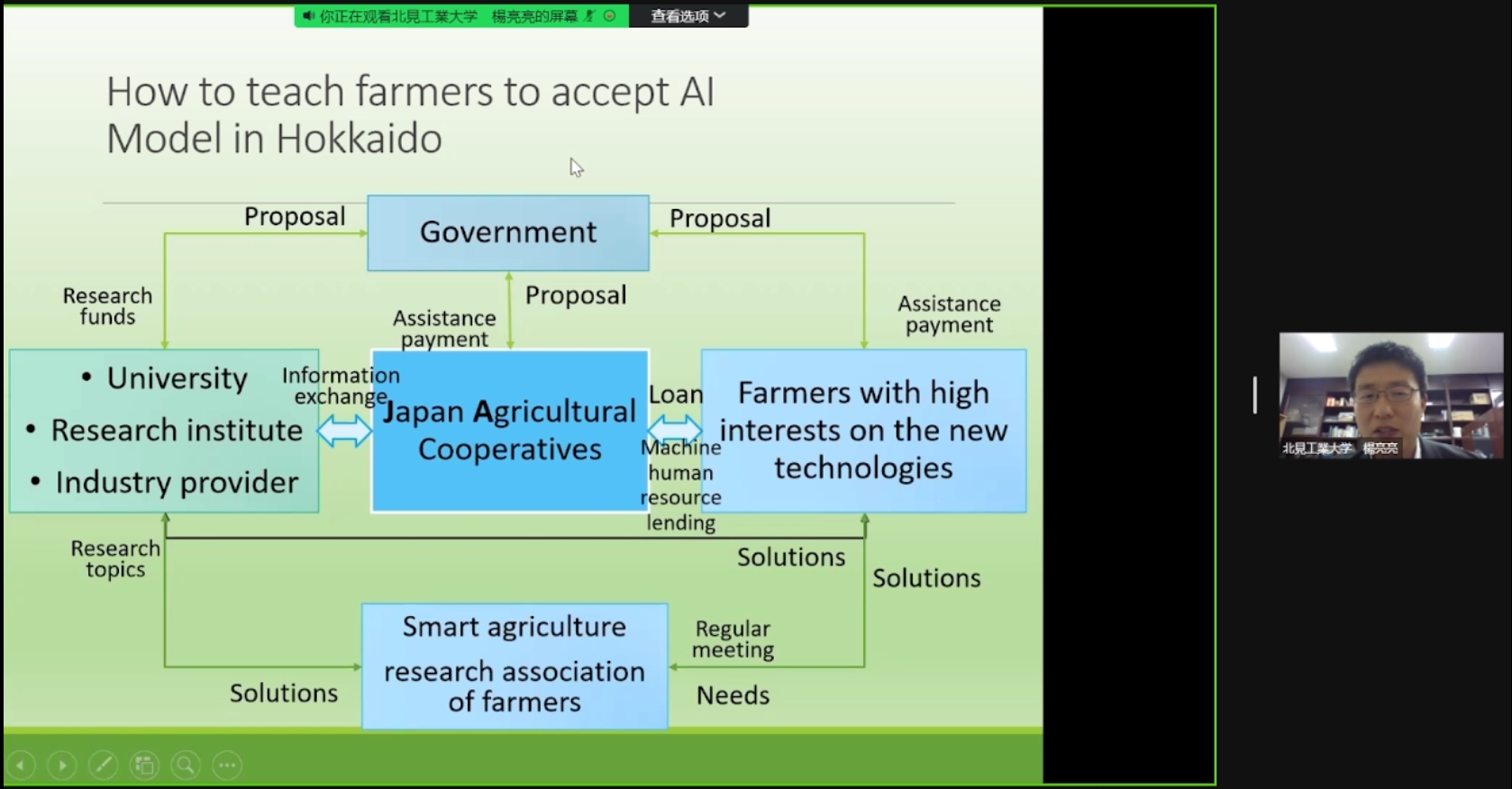College of Biosystems Engineering and Food Science host a series of online reports called "Digital Agriculture and Future Food" to boost international communication. On 10th August 2021, Dr. Liangliang Yang, an assistant professor from the Laboratory of Bio-mechatronics, Kitami Institute of Technology, gave an academic report entitled "AI Agriculture & Its Application in Northern Japan."

Dr. Yang mainly engaged in the study of hardware and software development of automatic driving control systems for uncrewed tractors in intelligent agriculture, including establishing a tractor model, dynamics analysis and operation precision evaluation; recognition method of vegetable harvesting robot based on AI.
In the beginning, Dr. Yang briefly introduced Hokkaido and Kitami institute of technology through videos. The main contents of the report consisted of the history and current technology of AI and the application of AI in smart agriculture, especially in his lab. AI is short for Artificial Intelligence, first proposed by John McCarthy in 1956 and boomed again after 2010. AI has been used in classification, object detection, pixel-level region segmentation and generative adversarial networks.

Afterward, Dr. Yang presented the sketch map about how to teach farmers to accept the AI model in Hokkaido. He introduced his researches according to projects in which he's involved. The main points are to explain robot tractors and Quasi Zenith Satellite System (QZAA). Control methods, headland turning methods, position compensation of robot tractors used for cultivation, seeding, fertilization, weeding, spraying, and harvesting, were showed in the report. QZAA with a limited coverage area is mainly applied to supplement and enhance the signals of GPS. We could see the operations of the robot more intuitively from videos provided by Dr. Yang.
Dr. Yang concluded that AI is still under development with the cost-reducing year by year, accepted in every region of our life, including farming. The robot will be accelerated applied in agriculture with AI.
At the end of the lecture, Dr. Yang answered students' questions, including research and university introduction. Dr. Yang pointed out that, for practical application, their experiments were carried out in farmland instead of experimental plots. From this lecture, students learned a lot about AI development status and future trends.
